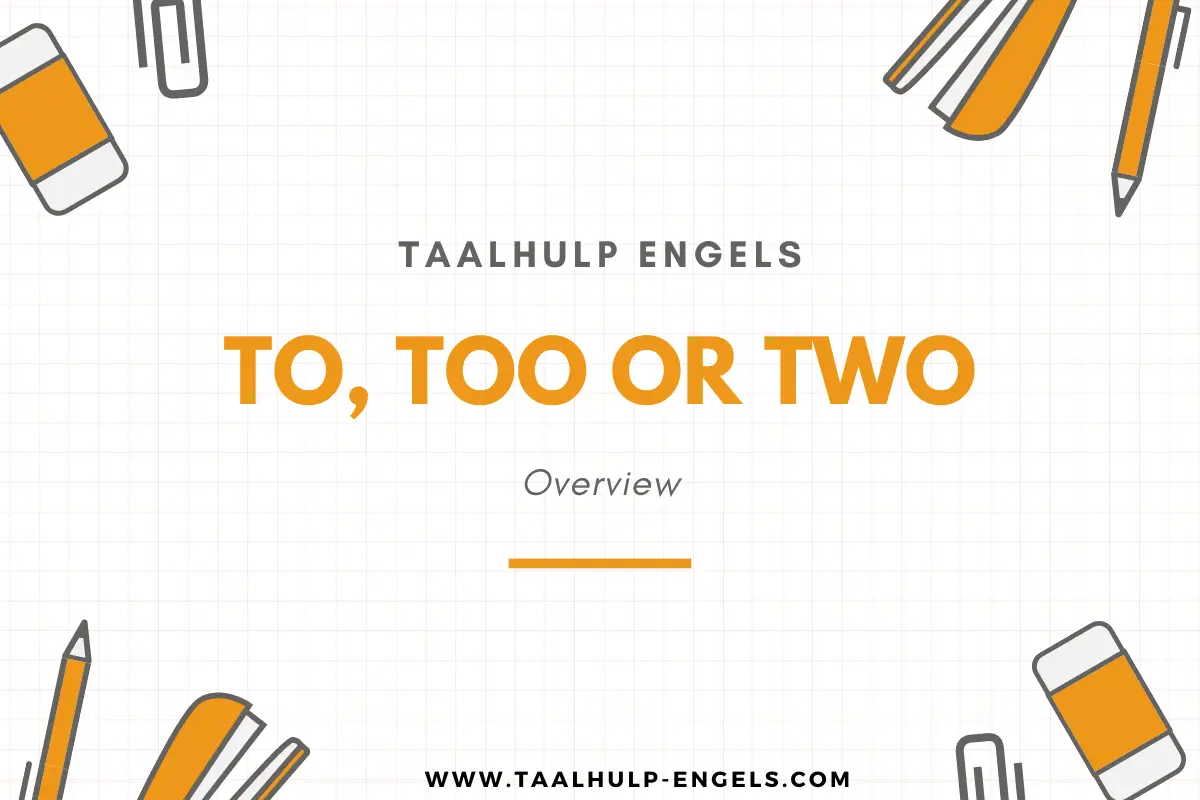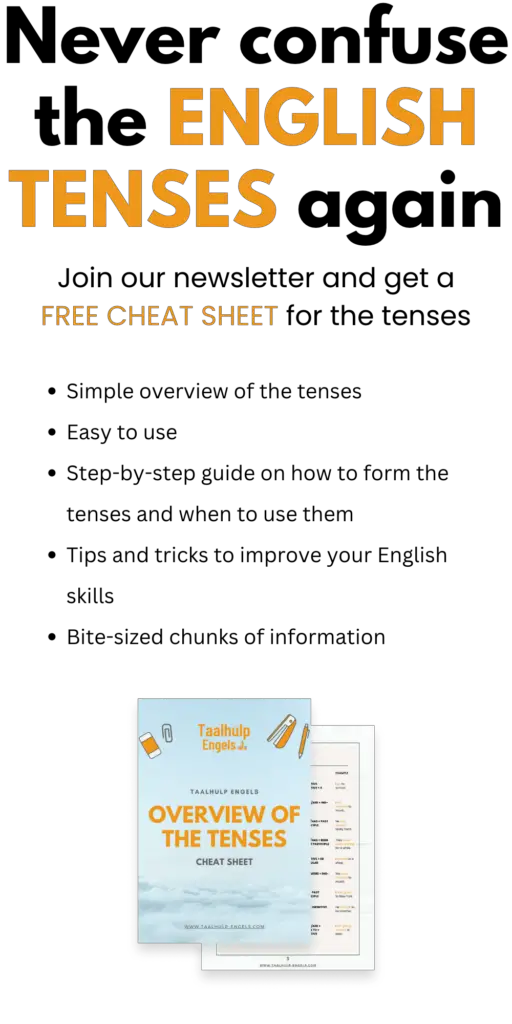A common mistake in English is using to, too and two in the wrong context. The pronunciation of these words is the same, but they have completely different meanings. This article offers a full overview of the difference between to, too, and two.
Difference to, two and two
The difference between to, too, and two confuses some people but is pretty easy once you know. To is a preposition that is sometimes used to express motion, too means ‘also’ or ‘extremely’ and two is the number two.
To: a preposition that is used to express motion. It’s usually part of an infinitive.
- I am going to Spain next week.
- I will give this present to my sister.
- He needs that to run fast.
Too: also, in addition, or extremely.
- She is too tired.
- We want a present too.
- I was eating too fast.
Two: the number two.
- They need two books.
- I have just eaten two apples.
- She is number two.

To, too or two overview
It’s difficult to tell the difference between to, too, and two based on the pronunciation. You should look at the context in which they are used. You have an overview of the differences with examples below.
| Word | Meaning | Example |
|---|---|---|
| to | preposition to express motion usually before an infinitive | He needs that to run fast. |
| too | also, in addition, extremely | I have eaten too much candy. |
| two | number two | She wants two pies for her birthday. |


Exercises
- To, Too or Two Exercise 1
- To, Too or Two Exercise 2
- To, Too or Two Exercise 3
- To, Too or Two Exercise 4
- To, Too or Two Exercise 5


